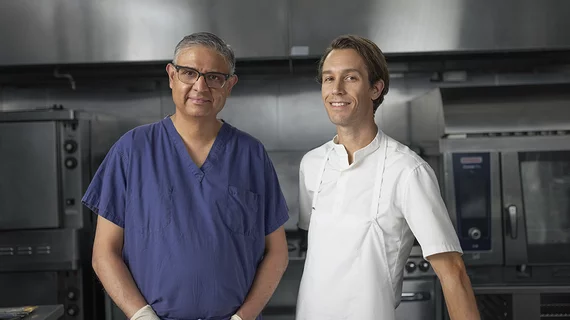Cardiac surgeon, award-winning chef bring surgical techniques to the kitchen in new cookbook
Two leaders in their respective fields, a veteran cardiothoracic surgeon and a chef with two Michelin stars, have collaborated on a new cookbook designed to bring the precision of surgery out of the operating room and into the kitchen.
Nirav Patel, MD, director of robotic cardiac surgery at Northwell Health, developed the cookbook with Fredrik Berselius, founder and owner of Aska in Brooklyn, New York. International healthcare technology company Getinge providing funding and additional resources.
The Heart Surgeon’s Cookbook includes nine recipes, including “Kingfish Rose with Green Gooseberry” and “Roasted Quail with Truffle and Ramp.” Each dish requires at least one advanced surgical technique—making precise cuts, for example, or injecting something into a confined area. This means heart surgeons get to fine-tune their skills while cooking high-quality food for loved ones.
“Dexterity leads to precision,” Patel said in a statement. “Without precision, surgery is not effective. You must understand the importance of being effortlessly nimble and precise. It's not that hard to see the parallels with high-end cooking.”
“The most exciting challenge with this project was to try to look at food through the eyes of a surgeon,” Berselius said in a prepared statement. “It was a phenomenal experience from start to finish.”
The full cookbook is available at this link. Just be prepared before you cook: Needles and thread, needle drivers, suture scissors and tweezers are just some of the tools chefs will need to complete these nine recipes.

